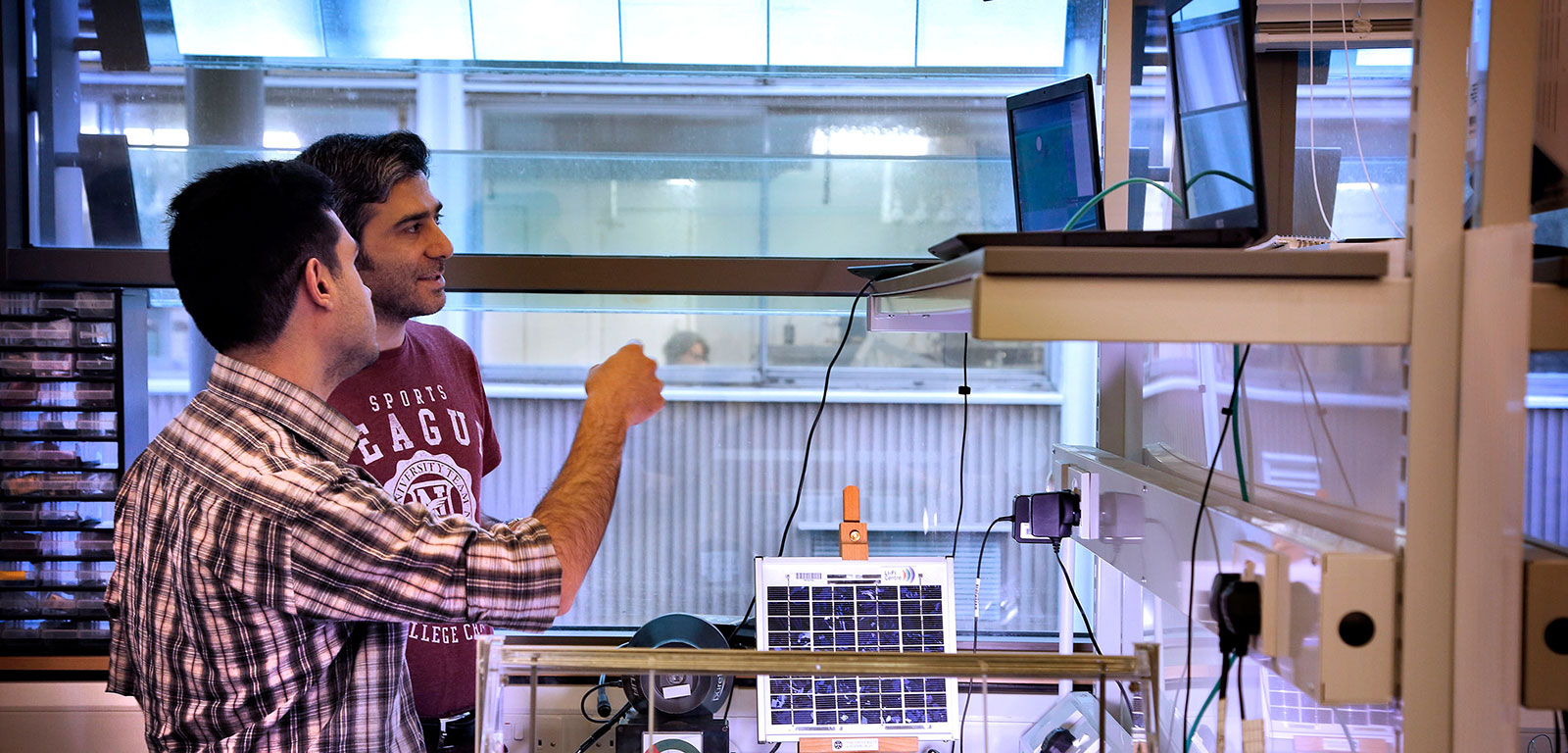

A UK 2:1 degree, or international equivalent, in Electrical and/or Electronic Engineering.
Other closely related backgrounds may be considered on a case-by-case basis.
Entry to this programme is competitive. A typical offer will normally require a UK first class honours degree or equivalent.
For 2020 entry we accept the following English language qualifications at the grades specified*:
IELTS: total 6.5 (at least 6.0 in each module)
TOEFL-iBT (including Special Home Edition): total 92 (at least 20 in each module). We do not accept TOEFL MyBest Score to meet our English language requirements.
PTE Academic: total 61 (at least 56 in each of the "Communicative Skills" sections)
CAE and CPE: total 176 (at least 169 in each module)
Trinity ISE: ISE II with distinctions in all four components
We also accept a degree that has been taught and assessed in English from a university on our list of approved universities in non-majority English speaking countries.
If you are not a national of a majority English speaking country, then your degree must be no more than three and a half years old at the beginning of your programme of study.
*(Revised 21 February 2020 to remove PTE Academic from 2021 entry requirements. Revised 21 April 2020 to include TOEFL-iBT Special Home Edition in 2020 and 2021 entry requirements.)
Your English language qualification must be no more than three and a half years old from the start date of the programme you are applying to study, unless you are using IELTS, TOEFL, PTE Academic or Trinity ISE, in which case it must be no more than two years old.
The two-year MSc programme in Advanced Power Engineering is designed to train power engineers in the most current developments in the field, and help them develop fundamental and applied research skills through a combination of taught modules, workshops and a comprehensive research dissertation carried out during the second year of the programme, supported by the internationally leading experts of the Institute for Energy Systems. Our academics regularly lead or participate in large, multi-institutional and multi-national research projects in the area of electrical power engineering. The learning experience is augmented by a number of supporting activities delivered throughout the duration of the programme.
Graduates will be equipped with specialised knowledge associated with the individual modules within the programme, and will develop a deep understanding of advanced power engineering concepts fostered throughout the programme and obtained from the supplementary training activities, study projects and dissertations.
The first year of the programme develops from fundamental topics and research tools and techniques in electrical power engineering, to specialist courses on emerging technologies and advanced numerical methods for power engineering problems.
Following the summer break, the second year of the programme is fully dedicated to the Masters research project, where the students, in close collaboration with academics and researchers of the Institute for Energy Systems, put into practice the knowledge and skills acquired during the first year, in application to an actual power engineering problem. For the research project there is an option to either carry it out within one of our power research groups, or as an industrial placement at a collaborating company in the power sector.
Year 1 - Semester 1
Distributed Energy Resources and Smart Grids
Power Engineering Fundamentals
Engineering Research Methods with Grand Challenge
*(Revised 26 June 2020 to update Semester 1 and Semester 2 course options.)
Year 2 - Semesters 1 and 2
Year 1 - Semester 2
Research Project: Advanced Power Engineering Dissertation
Solar Energy & Photovoltaic Systems
Advanced Power Electronics and Machines
Power Systems Engineering and Economics Principles of wind energy

Power Engineering is one of the most in-demand professions in the UK and worldwide. Graduates from our MSc programmes go on to a wide range of activities. Some return to jobs and academia in their own countries; some take up employment with well-known companies in Scotland, the UK and elsewhere in the world, e.g. with governments, energy consultancies, energy utilities, engineering or construction companies and renewable energy developers. This programme is specifically designed for students who are interested in pursuing a PhD or taking up professional posts with demanding research and development duties.
The programme runs in a close association with other activities within the broader Electrical Engineering programme within the School, including networking events, industrial presentations and seminars. It benefits from the current strong connections with industry (coordinated by the Student Industry Liaison Manager, and existing research associations and consortia (such as the EPSRC Centre for Energy Systems Integration).
